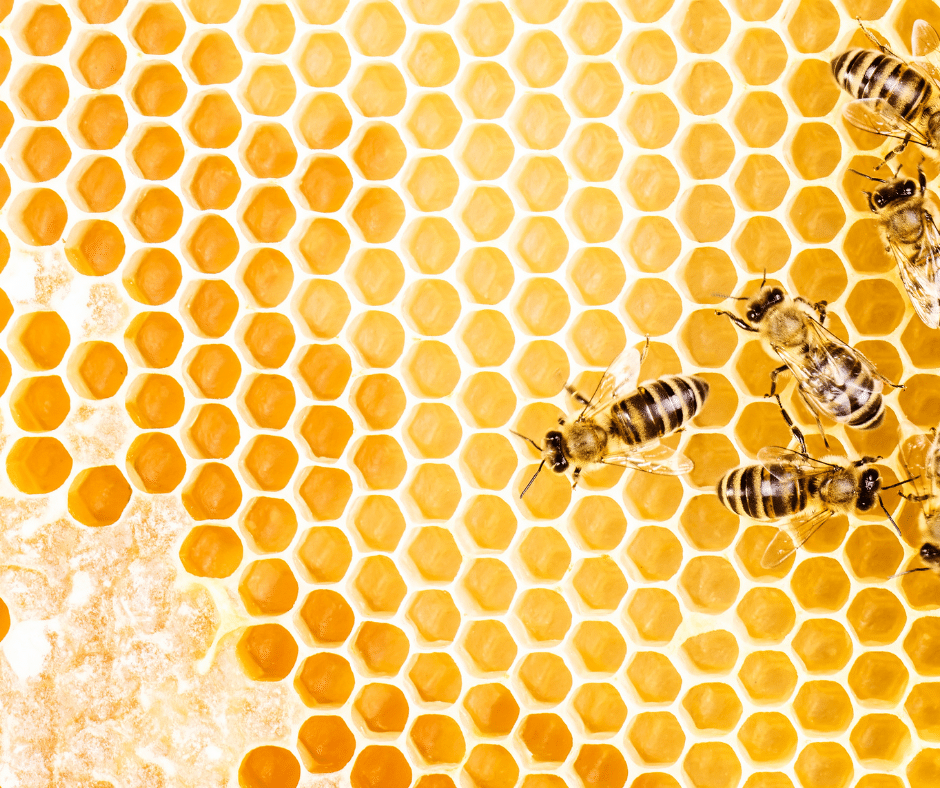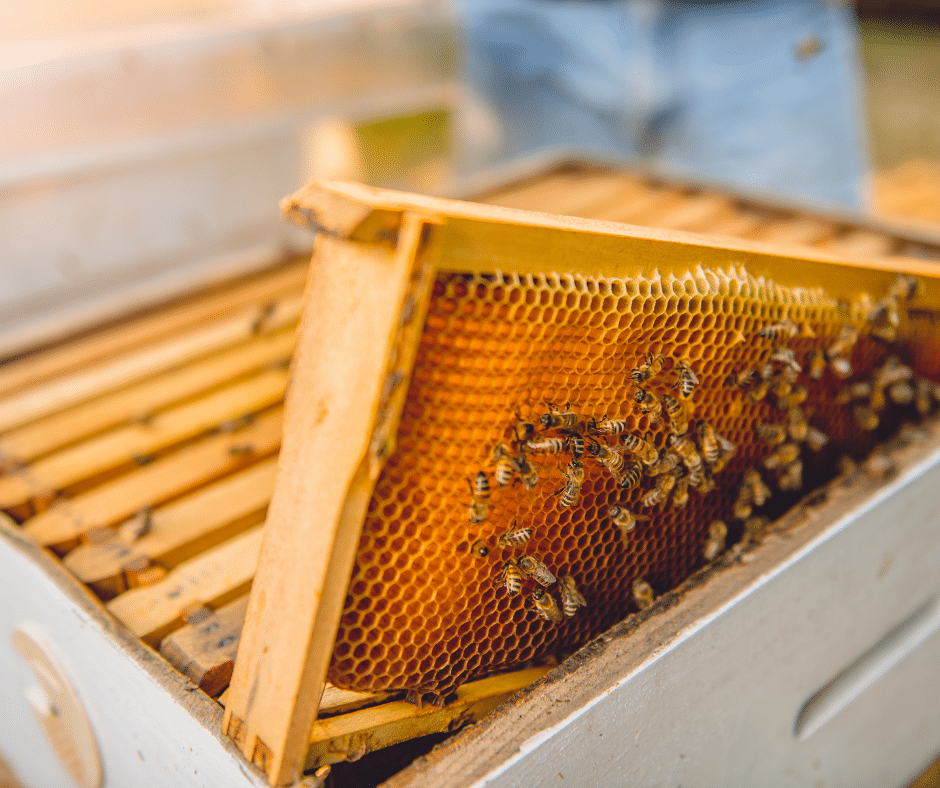Bees are very important to humans. Without bees, many foods that you eat will not exist. Bees pollinate many fruits and vegetables which allows them to grow. Without these foods, our population would decrease rapidly because we would have nothing to eat.

Bees also help clothes and other things grow too. One example of this is cotton, which comes from a plant that is pollinated by bees. Bees are very helpful to humans, they make many things possible.
Beekeeping in Ancient Egypt
It is thought the ancient Egyptians started beekeeping when they discovered bees living inside a dark anthill one day and decided to tie baskets around some of them, which collected honey as they filled up. It was then harvested by cutting into the nest.
Beekeeping in Ancient Greece
Greek mythology says Aristaeus discovered how to beekeep after observing a wild swarm of bees flying around him and settling on a nearby tree. A few days later, they flew from the nest only to perish. He remembered this when he was trying to get his own bees to stay put.
He had gathered his bee hives and tied the entrances down with twigs so they couldn’t escape. Then he smeared mud around the lids of each one, making them sticky so that no air could come in or out. Finally, he removed them from their nests and let them dry in the sun until they were firmly stuck in place.
When he replaced each hive, he saw that the bees had brought in fresh pollen and honey from the flowers they visited while he had been away. So Aristaeus became the first beekeeper and used his knowledge to help others.

Beekeeping in Ancient Rome
Romans learned beekeeping from the Egyptians and practiced this from 500 to 900 BC. They kept bees in straw skeps, clay pots, and pottery vessels.
Beekeeping in the U.S.
By 1622, European settlers brought beekeeping to North America by building boxes and using hollow logs for their hives. Beekeepers made no effort to control the type of honeybee; therefore, it was possible for several bee species to exist in one area. This proved disastrous when American foulbrood and European foulbrood spores contaminated some of the bee colonies and caused many of them to die.
Beekeeping Today
Today, some beekeepers raise bees while others purchase their hives and take care of them for a fee. Since hives are located in many different areas, beekeepers transport the bees to farms for pollination.
As you can see, bees are very important to humans because they make many things possible like fruits and vegetables which allow us to continue living. Without bees, our lives would be much different than what they are today.
